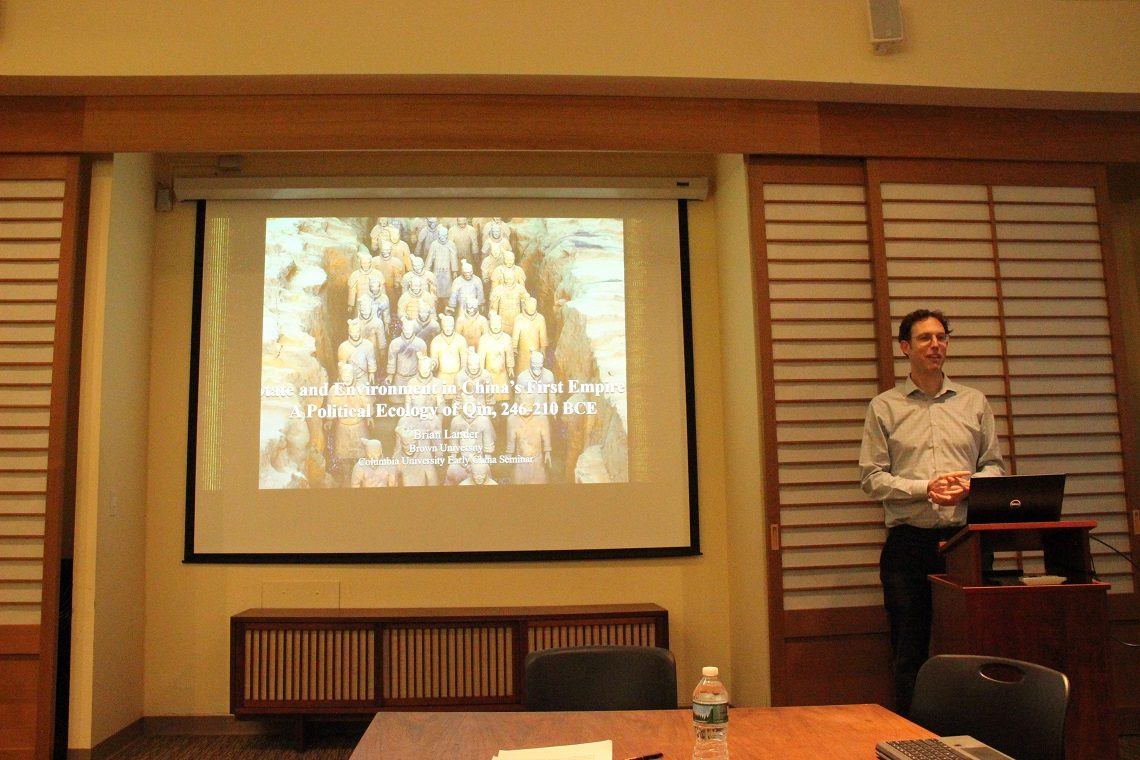January 25, 2019
Early China Seminar Lecture Series
Title: “State and Environment in China’s First Empire: A Political Ecology of Qin”
Speaker: Brian Lander, Brown University
Time: January 25, 2019 (4:30-6:30 PM)
Location: 403 Kent Hall
The state-strengthening reforms of the Warring States period created China’s first centralized bureaucracies, for the first time giving governments the power to alter the ecology of large regions. This paper employs excavated administrative texts to analyze the role the Qin state played in the environment of its empire during the reign of its First Emperor (246-210 BC). These documents show that Qin kept detailed records of land, people and natural resources, and was remarkably effective in mobilizing surplus production and labor. Qin is famous for its massive construction projects like the Great Wall and the terracotta army, but in fact Qin used much of its resources to reorganize agrarian landscapes and build roads, dikes and irrigation projects. This greatly facilitated the conversion of natural ecosystems into farmland across the subcontinent. Despite the dramatic collapse of Qin’s empire, its centralized bureaucratic model of governance has persisted for over two millennia, playing a central role in the almost complete replacement of lowland China’s natural ecosystems with anthropogenic ones.

